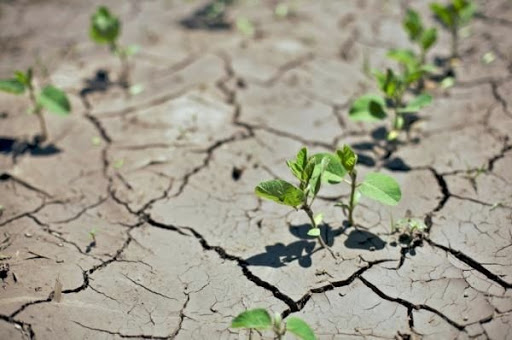God Promises to Replenish
God says, “Do not be afraid, land of Judah; be glad and rejoice. Surely the Lord has done great things! … ‘I will repay you for the years the locusts have eaten … you will have plenty to eat, until you are full and you will praise the name of the Lord your God, who has worked wonders for you.” Joel 2:21, 25–26
A swarm of locusts “can bulldoze pasturelands in dark clouds the size of football fields and small cities.” The crop devastation destroys both lives and livelihoods. Even a small swarm “can consume as much food as would be eaten by 35,000 people in a single day.”[1]

Both locusts and drought ravaged the land of Judah during the prophet Joel’s lifetime. He wrote, “the fields are ruined, the ground is dried up; the grain is destroyed, the new wine is dried up, the olive oil fails” (Joel 1:10). And desolation in the natural world often leads to emotional and spiritual famine: “the people’s joy is withered away” (v. 10).
Joel used the natural disasters to warn about the future Assyrian invasion, which would also destroy the land. The prophet then urged God’s people to “return to the Lord your God, for he is gracious and compassionate. … Who knows? He may turn and relent and leave behind a blessing” (2:13–14).
I’ve never witnessed the devastation caused by locusts, but I have seen the destruction caused by floods, hurricanes, and tornadoes in the neighborhoods I’ve lived in. And, during certain life seasons, circumstances have swept through my family that wreaked emotional and spiritual havoc.
Our first response to disaster may be questions: Why did you allow this to happen, God? Or, what did I do to deserve this? And, as Joel advised his listeners, maybe our next step should be repentance.
But another step is equally vital. In distressing times, God asks us to set aside fear and doubt. Instead, we can choose to “be glad and rejoice” (2:21), for God responds to humble, repentant hearts and promises to “restore what the locusts have eaten” (2:25).
Whether you are in a season of devastation or restoration, take your questions, concerns, and fears to the Lord. Repent if necessary, then choose to focus on future blessings. God will restore what has been lost, and you will discover many reasons to praise him again (2:25–26).
Dig Deeper
Read Joel 1–2. Which portion is most relevant to your life right now—Joel’s account of disasters (1:1–2:11), his call for repentance (2:12–17), or his prophecy of restoration (2:18–27)? What will your next step be?
The word translated “shamed” in Joel 2:26–27 (NIV) means “to fail in hope and expectation.” How can we guard against such failure? Read Isaiah 40:31 along with 2 Corinthians 4:16–17 and Hebrews 12:1–3.
Compare Joel 1:19–20 and 2:22 with Romans 8:19–22. How are the animal and plant kingdoms affected by human sin? In what ways do you think our sinfulness hinders our ability to carry the responsibility God gave to humankind in Genesis 2:15?
Denise K. Loock
This devotion is part of our “Do Not Be Afraid” series.
[1] In the article, a “small swarm” covers 1/3 square mile. Pranav Baskar, “Locusts Are a Plague of Biblical Scope in 2020. Why? And … What Are They Exactly,” NPR.org, 14 June 2020, https://www.npr.org/sections/goatsandsoda/2020/06/14/876002404/locusts-are-a-plague-of-biblical-scope-in-2020-why-and-what-are-they-exactly.

Comments
Thank you for these words of hope for restoration